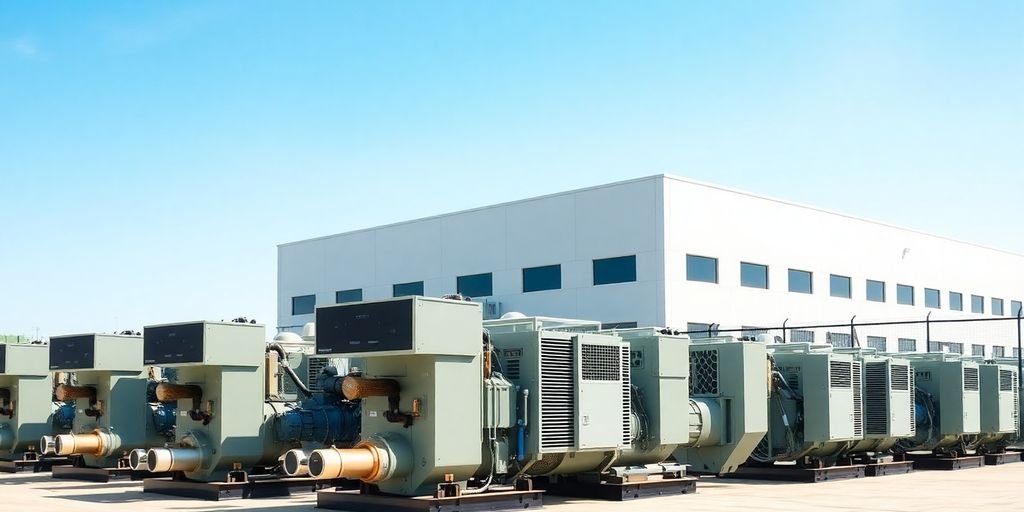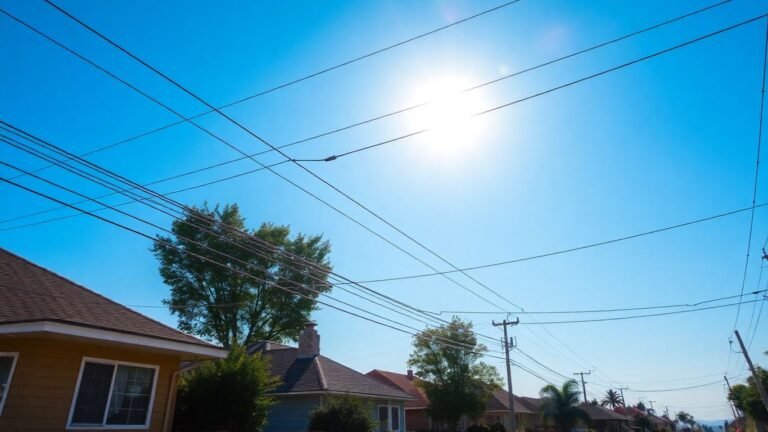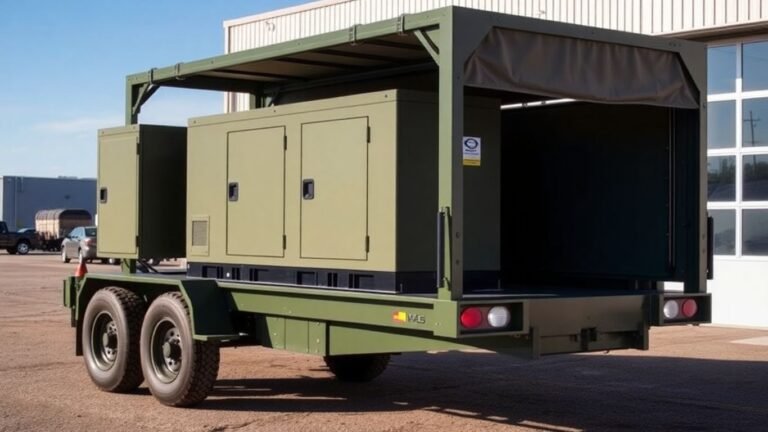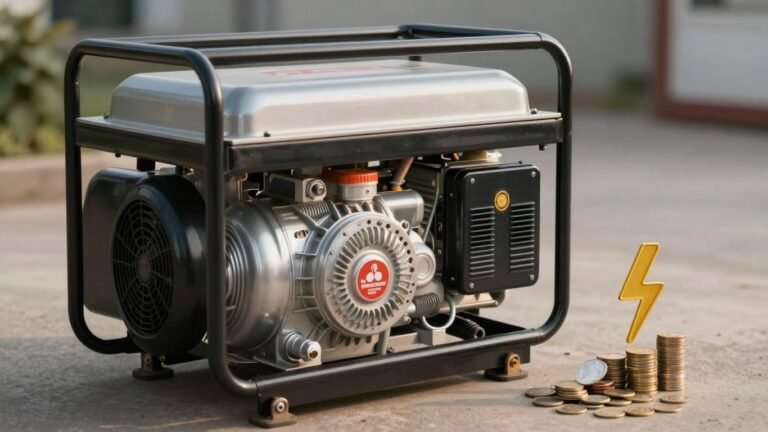Microsoft obtains approval to install 128 diesel generators across data center portfolio in Cheyenne, Wyoming
Microsoft is making big moves in Cheyenne, Wyoming, with plans to set up a bunch of new data centers. To keep things running smoothly, even when the power goes out, they’re getting permission to install 128 diesel generators. This whole thing involves working with state regulators and dealing with community concerns, but it also shows how much Microsoft is putting into the area. It’s a pretty big deal for both Microsoft and Cheyenne.
Key Takeaways
- Microsoft is expanding its data center presence in Cheyenne, Wyoming, which means more facilities and more tech in the area.
- The company got the green light to put in 128 diesel generators, which are there to make sure power stays on, no matter what.
- Getting this approval meant going through a process with the Wyoming Department of Environmental Quality, including a public comment period.
- There are ongoing talks about how this project will affect the environment, like air quality and fuel storage, and how to balance that with growth.
- This project is a joint effort with local energy provider Black Hills Energy, showing Microsoft’s plan for a steady power supply in the long run.
Microsoft’s Strategic Expansion in Cheyenne
Growing Data Center Footprint
Microsoft’s decision to expand its data center operations in Cheyenne signals a significant commitment to the region. The addition of these facilities will substantially increase their computing capacity, allowing them to better serve their global customer base. This expansion is not just about adding more servers; it’s about building a robust and scalable infrastructure to meet the ever-growing demands of cloud computing and data storage. The scale of this project is pretty impressive, and it shows that Microsoft sees Cheyenne as a key location for its future growth.
Leveraging Wyoming’s Infrastructure
Wyoming offers a unique set of advantages that make it an attractive location for data centers. These include:
- Relatively low energy costs
- A favorable regulatory environment
- Available land for development
Microsoft is strategically capitalizing on these factors to create a cost-effective and efficient data center ecosystem. The state’s infrastructure, including its power grid and network connectivity, plays a crucial role in supporting the operations of these facilities. It’s a smart move, really, to take advantage of what Wyoming has to offer.
Long-Term Investment in the Region
Microsoft’s investment in Cheyenne goes beyond just building data centers; it represents a long-term commitment to the local economy and community. This project will create jobs, stimulate economic growth, and contribute to the overall prosperity of the region. The company’s presence will also attract other businesses and investments, further solidifying Cheyenne’s position as a technology hub. The approval for diesel generators is a part of this long-term plan, ensuring operational reliability for years to come.
Microsoft’s expansion in Cheyenne is a testament to the region’s potential as a data center hub. The company’s investment will have a lasting impact on the local economy and community, creating opportunities for growth and innovation.
The Role of Diesel Generators for Microsoft
Ensuring Uninterrupted Operations
Data centers are the backbone of the digital world, and downtime is simply not an option. Microsoft relies on diesel generators as a critical component of its business continuity strategy. These generators provide an immediate source of power should the primary grid fail. It’s like having an insurance policy for their data, ensuring services remain available to users worldwide. Think of it as a safety net, ready to catch things when they fall.
Backup Power Necessity
Diesel generators are a proven technology for backup power. While newer technologies like hydrogen fuel cells are emerging, diesel remains a reliable and cost-effective solution for many data centers. The need for backup power stems from the fact that power grids aren’t perfect. Outages can occur due to weather events, equipment failures, or even simple human error. Without a robust backup system, a data center could face significant financial losses and reputational damage.
Mitigating Power Interruptions
Microsoft’s investment in 128 diesel generators in Cheyenne is a direct response to the potential for power interruptions. These generators are designed to kick in automatically within seconds of a power outage, minimizing any disruption to data center operations. This rapid response is crucial for maintaining the availability of cloud services, online applications, and other critical infrastructure. It’s all about keeping things running smoothly, no matter what happens.
The goal is simple: to keep the lights on and the data flowing. Diesel generators, while not the most environmentally friendly option, provide a level of reliability that is hard to match with current alternative technologies. They are a necessary evil, at least for now, in the quest for 100% uptime.
Regulatory Approval Process for Microsoft
Wyoming Department of Environmental Quality Oversight
The process of getting approval for a project like this isn’t exactly a walk in the park. Microsoft had to work closely with the Wyoming Department of Environmental Quality (WDEQ) to make sure everything was above board. The WDEQ is responsible for making sure that any new construction or modification doesn’t mess with the air, water, or land quality in the state. This means Microsoft had to submit detailed plans, environmental impact assessments, and all sorts of technical documents to prove they were playing by the rules. It’s a pretty involved process, but it’s there to protect the environment and the people who live nearby. The WDEQ’s rigorous review ensures compliance with state and federal regulations.
Public Comment Period Concludes
One of the key parts of the regulatory process is the public comment period. This is where regular folks get a chance to voice their opinions and concerns about the project. The WDEQ opened up a period where anyone could submit comments about Microsoft’s plans for the diesel generators. People could share their thoughts on potential air quality impacts, noise pollution, or any other concerns they had. All those comments are reviewed by the WDEQ, and Microsoft is required to respond to them. It’s a way to make sure the community’s voice is heard before any final decisions are made. It looks like the public comment period has concluded, and the WDEQ is now reviewing all the feedback.
Permit for Emissions and Storage
Getting a permit is the final hurdle. This permit covers a few key areas. First, it sets limits on how much pollution the generators can release into the air. These limits are based on federal and state air quality standards, and Microsoft has to prove they can meet them. Second, the permit covers how Microsoft will store the diesel fuel.
There are strict rules about tank construction, leak detection, and spill prevention to make sure the fuel doesn’t contaminate the soil or groundwater. The permit also outlines inspection and reporting requirements, so the WDEQ can keep an eye on things and make sure Microsoft is following the rules. Without this permit, Microsoft can’t legally operate those generators. The optimal load range for diesel generators is a key factor in emissions management.
Securing this permit is a big deal for Microsoft. It means they’ve jumped through all the regulatory hoops and demonstrated they can operate these generators in a way that protects the environment and the community. It’s a long and complex process, but it’s essential for responsible development.
Environmental Considerations and Microsoft’s Impact
It’s no secret that data centers use a lot of power, and with Microsoft planning to install all those diesel generators, people are bound to ask questions about the environmental impact. It’s a balancing act, trying to keep up with the growing demand for cloud services while also trying to be responsible about environmental stewardship. Let’s break down some of the key concerns.
Addressing Air Quality Concerns
Okay, so 128 diesel generators? That sounds like a lot, right? The main worry is what all those generators will be pumping into the air. We’re talking about emissions like nitrogen oxides and particulate matter, which can affect air quality. Microsoft will need to implement strategies to minimize these emissions, such as using advanced filtration systems or cleaner-burning diesel fuel. The emissions permit from the Wyoming Department of Environmental Quality will likely have strict limits on what’s allowed.
Managing Fuel Storage Capacity
Think about it: 128 generators need a lot of fuel. That means large storage tanks on-site. Proper management of this fuel is super important to prevent leaks or spills that could contaminate the soil and groundwater. There will probably be regulations about tank construction, monitoring, and emergency response plans in case something goes wrong. It’s not just about having the fuel; it’s about storing it safely.
Balancing Growth with Environmental Stewardship
Microsoft’s expansion in Cheyenne brings economic benefits, but it also puts pressure on the environment. The challenge is finding a way to balance the need for more data center capacity with the need to protect Wyoming’s natural resources. This could involve investing in renewable energy sources to offset the reliance on diesel generators, implementing water conservation measures, and working with the community to address any concerns. It’s about showing that growth and environmental responsibility can go hand-in-hand.
It’s important to remember that environmental impact assessments are complex. They involve a lot of data, modeling, and assumptions. There’s always uncertainty, and different people will have different opinions about what’s acceptable risk. The key is to have an open and transparent process where everyone can voice their concerns and have them taken seriously.
Community Engagement and Local Perspectives
Cheyenne Mayor’s Insights
I had a chance to listen to Mayor Orr’s take on the whole Microsoft data center situation, and it’s pretty interesting. He seems cautiously optimistic. He acknowledges the concerns some folks have about the environmental impact, especially with all those diesel generators, but he also points out the potential for job creation and economic growth. It’s a balancing act, for sure. He mentioned that the city is working closely with Microsoft to make sure they’re following all the regulations and being as responsible as possible. It sounds like he’s trying to make the best of a complex situation.
Public Input on the Project
So, the public comment period wrapped up a while ago, and from what I’ve gathered, it was a mixed bag. You had some people who were all for it, seeing it as a sign of progress and a boost to the local economy. Then you had others who were really worried about the air quality and the noise from the generators. There were also questions about the long-term impact on the city’s resources, like water and electricity. I think the biggest concern was whether the benefits would really outweigh the potential downsides for the average person in Cheyenne. It’s tough to say if everyone feels heard, but at least there was a chance to voice those concerns.
Local Economic Benefits
Okay, let’s talk money. The big question is, how does this data center project actually help Cheyenne? Well, the obvious answer is jobs. Construction jobs, for sure, and then ongoing jobs to run and maintain the facility. But it’s more than that. Microsoft’s presence could attract other tech companies to the area, creating a kind of ripple effect. Plus, there’s the increased tax revenue for the city, which could go towards things like schools, roads, and other public services.
Of course, it’s not all sunshine and roses. There’s the potential for increased housing costs and other challenges that come with rapid growth. But overall, it seems like the potential economic benefits are pretty significant. It’s important to consider the best US-made diesel generators for backup power.
It’s a complex issue with no easy answers. Balancing economic growth with environmental responsibility is always a challenge, and it’s something that Cheyenne will have to grapple with as this project moves forward.
Here’s a quick breakdown of potential economic impacts:
- Job Creation (Construction & Operations)
- Increased Tax Revenue
- Attraction of Other Tech Companies
- Potential for Increased Housing Costs
Microsoft’s Energy Partnership in Wyoming

Collaboration with Black Hills Energy
Microsoft’s presence in Cheyenne isn’t just about building data centers; it’s also about forging strong partnerships to ensure a reliable power supply. A key player in this is Black Hills Energy, the local electric provider. They’ve been working closely with Microsoft to meet the growing energy demands of these facilities. This collaboration is essential for Microsoft’s operations, as data centers require a constant and stable power source to function correctly.
Securing Reliable Power Supply
Securing a reliable power supply is a top priority for Microsoft in Wyoming. The sheer scale of their data center operations means they need a lot of power, and any disruption can have significant consequences. To achieve this, Microsoft is working on multiple fronts:
- Investing in infrastructure improvements.
- Diversifying energy sources.
- Implementing advanced monitoring systems.
This proactive approach ensures that the data centers can maintain continuous operations, even in the face of unexpected outages or fluctuations in the power grid.
Future Energy Demands
Looking ahead, Microsoft’s energy demands in Wyoming are only going to increase. As they expand their data center footprint and introduce new technologies, they’ll need even more power to support their operations. This presents both a challenge and an opportunity. Microsoft is exploring various options to meet these future needs, including:
- Renewable energy sources.
- Energy storage solutions.
- Advanced grid management technologies.
It’s also worth noting that diesel gensets are a key component of the backup power strategy. By planning ahead and investing in innovative solutions, Microsoft aims to ensure that it can continue to operate its data centers in Wyoming efficiently and sustainably. The company’s commitment to Wyoming is clear, and its energy strategy reflects a long-term vision for growth and stability.
Technological Advancements and Microsoft’s Future
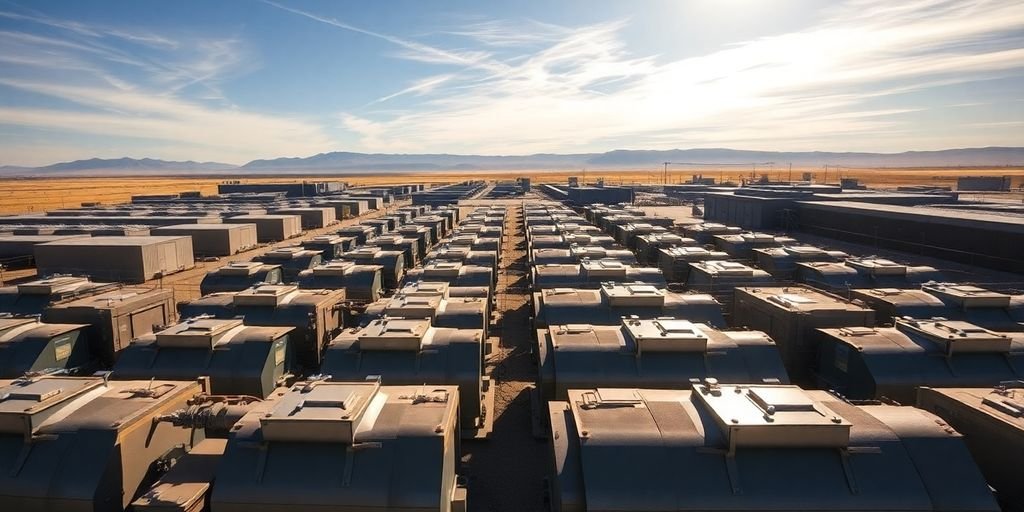
Supporting Hyperscale Operations
Microsoft’s move to expand its data center capabilities in Cheyenne is a clear indicator of the growing demand for hyperscale computing. These facilities are designed to handle massive amounts of data and processing power, which are essential for cloud services, AI, and other cutting-edge technologies. The ability to scale operations quickly and efficiently is a key factor in staying competitive in today’s market. Microsoft is investing heavily in infrastructure that can support its ambitious growth plans. The ideal location of Cheyenne is a strategic advantage.
Innovation in Data Management
Data management is at the heart of everything Microsoft does. With the explosion of data, finding new and better ways to store, process, and analyze information is critical. Microsoft is constantly innovating in areas like data compression, storage architectures, and data analytics tools. This includes exploring new technologies like quantum computing and advanced machine learning algorithms to gain deeper insights from data. Efficient data management not only improves performance but also reduces costs and environmental impact.
Scalability of Data Center Infrastructure
Scalability is no longer just a buzzword; it’s a necessity. Microsoft’s data centers need to be able to adapt to rapidly changing demands. This requires a flexible and modular infrastructure that can be easily expanded or reconfigured. Here are some key aspects of data center scalability:
- Modular design for easy expansion
- Automated resource allocation
- Efficient power and cooling systems
The future of data centers is all about being agile and responsive. Microsoft is focused on building infrastructure that can not only meet today’s needs but also adapt to the unknown challenges of tomorrow. This includes investing in research and development to explore new technologies and approaches to data center design and operation.
What This Means for Cheyenne and Beyond
So, Microsoft got the green light for all those diesel generators in Cheyenne. It’s a big deal, for sure. On one hand, it means more data center action, which can bring jobs and stuff to the area. That’s good. But then there’s the other side: all that diesel. People are definitely talking about what that means for the air quality and the environment. It just goes to show, when big tech companies expand, there’s always a balancing act between growth and keeping things clean. It’ll be interesting to see how this plays out in the long run for Cheyenne and other places where these kinds of projects pop up.
Frequently Asked Questions
Why does Microsoft need so many diesel generators in Cheyenne?
Microsoft wants to put 128 diesel generators at its data centers in Cheyenne, Wyoming. These generators will act as a backup power source, kicking in if the main electricity supply goes out. This helps make sure their computer systems stay online all the time.
Who is checking Microsoft’s plans for these generators?
The Wyoming Department of Environmental Quality (DEQ) is in charge of looking at Microsoft’s plan. They make sure the company follows all the rules about air pollution and storing fuel safely.
Did people in the community get to say what they thought about this project?
Yes, the public had a chance to tell the DEQ what they thought about Microsoft’s plan. This public comment period recently finished.
What are the main environmental concerns with this project?
The main worry is about air pollution from the diesel generators. The DEQ is looking at this to make sure the air quality in Cheyenne stays good. They’re also checking how Microsoft plans to store a lot of diesel fuel safely.
What does the local government in Cheyenne think about this?
The Mayor of Cheyenne, Patrick Collins, said that these generators are mostly for backup, in case the power stops for any reason. He also mentioned that Microsoft works with Black Hills Energy, the local power company, to get reliable electricity.
What kind of computer work do these data centers do?
Microsoft uses these data centers for ‘hyperscale operations.’ This means they handle huge amounts of information and need really powerful, always-on computer systems. The generators help keep these big systems running without any interruptions.

